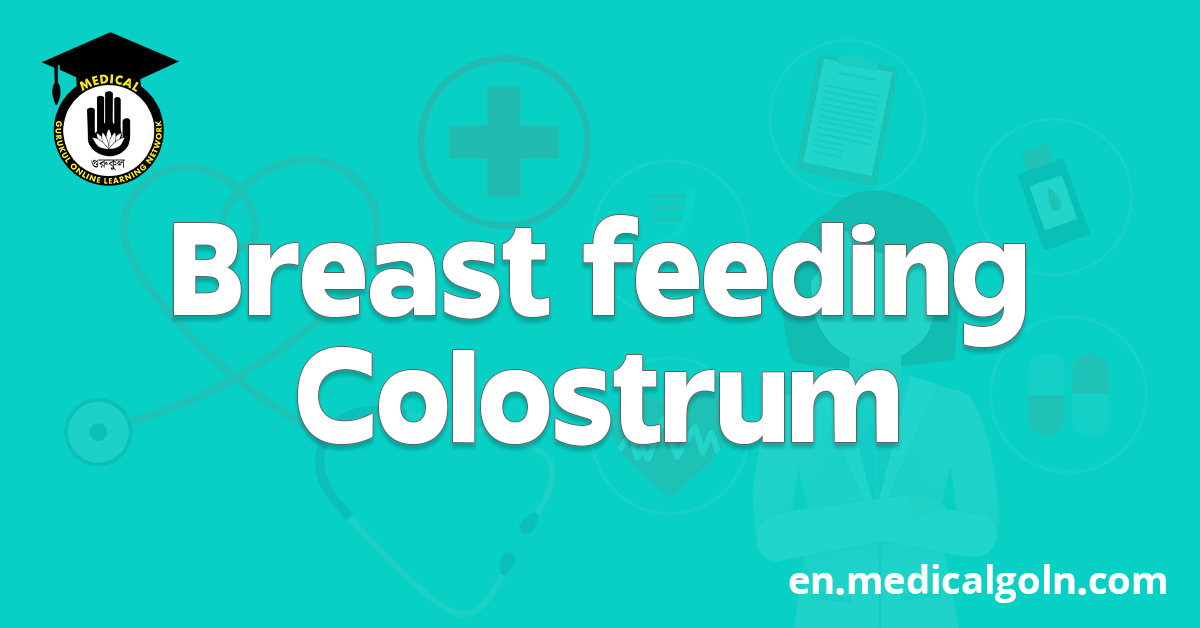Today is our topic of discussion Breast feeding Colostrum
Breast feeding Colostrum

Definition:
It is the secretion of breast following childbirth for the first 2-3 days (may also be secreted few days before childbirth). Its contents are –
1. Protein
2. Sugar
3. Minerals
4. Antibody
5. Fat
Importance:
Antibodies play an important role in protection against infection.
Weaning
Definition:
It is the process of gradual changing of diet pattern in a child of 5-6 months from exclusive breast feeding to supplementary food.. Supplementary foods are soft cooked rice, soft cooked vegetables, dhal water, boiled potato, fruit juice, half boiled egg etc.
Exclusive Breast Feeding (EBF)
Definition:
When the baby is given only breast milk, not even a drop of water, upto 5/6 months of age it is called ‘exclusive breast feeding’. Its features are-
1. No drinks or food other than breast milk is given to the baby.
2. No pacifiers/dunimies or artificial teats are given to the baby.
3. Most exclusively breast-fed babies breastfed at least 8-12 times in 24 hours.

Advantages/benefits of breast feeding/EBF:
1. Breast feeding is clean and safe
2. It is easier.
3. Breast feeding is cheap.
4. Breast milk supplies antibody which protects the baby from infection.
5. The composition of breast milk is ideal for the infant: Not too dilute or concentrated.
6. Breast milk is a complete food providing all the nutrients and water needed by a healthy infant.
7. Breast feeding helps with birth spacing. .
8. Milk intolerance is very rare in infants with EBF
9. Breast feeding immediately after delivery encourages the bonding of the mother to her baby.
Disadvantage of artificial feeding:
1. Inadequate supply.
2. Mistakes in proportion during making.
3. Chance of infection by salmonella, shigella etc..
4. Neonatal tetany
5. Obesity and malnutrition
6. Cows milk allergy and infantile eczema.

See also :
